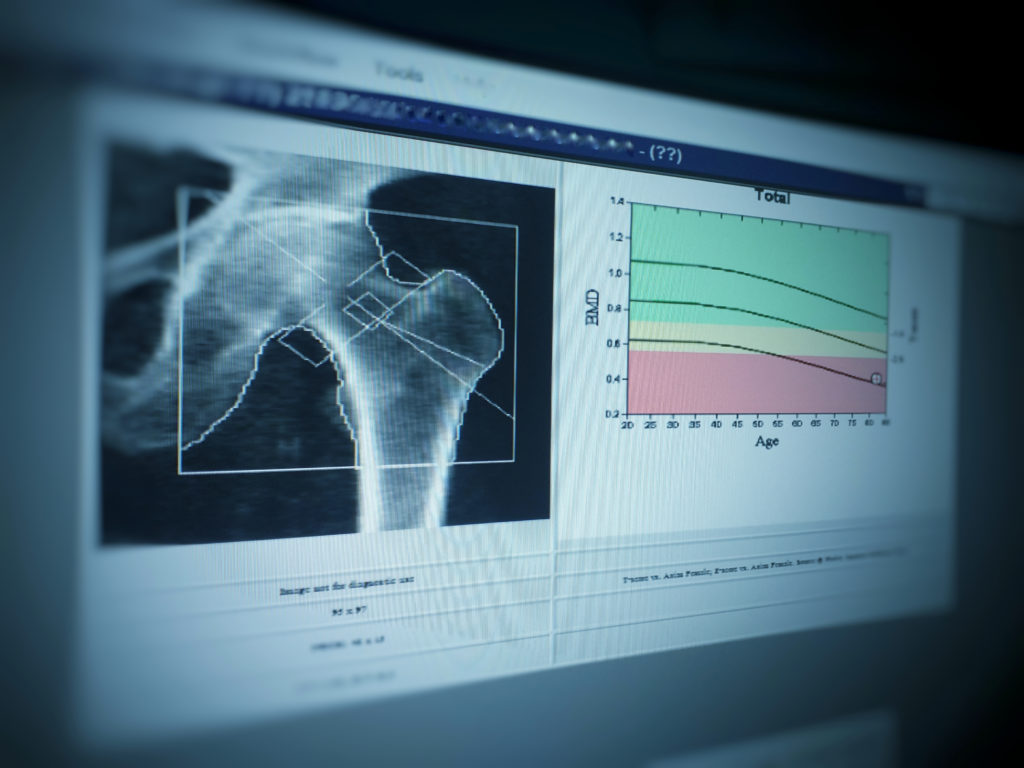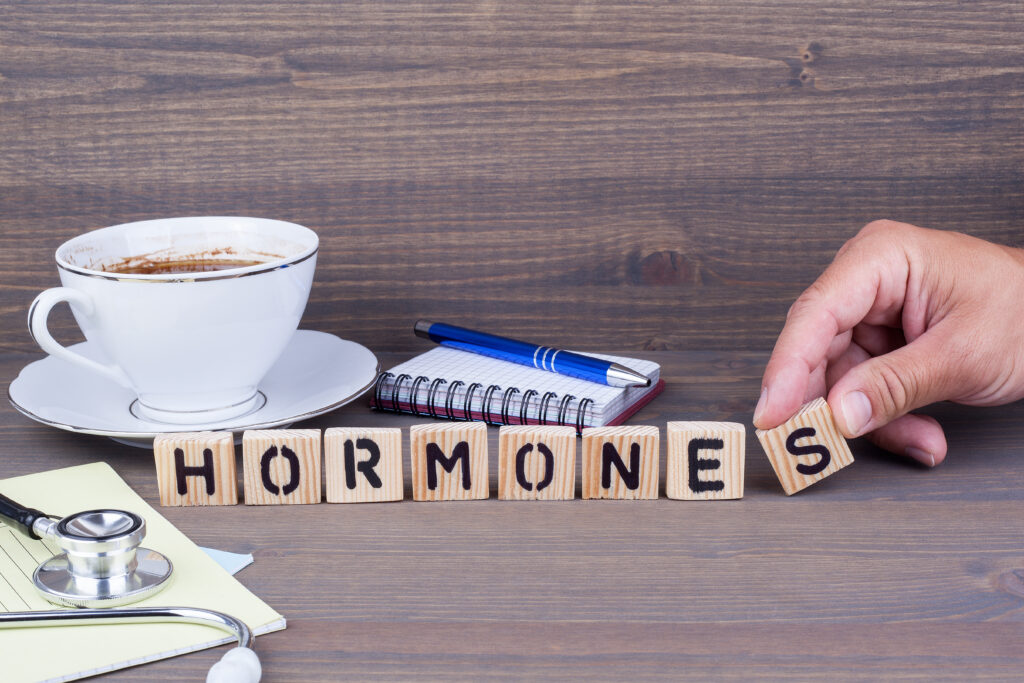Although osteoporosis is a bone disease that can be genetically passed down, there are certain lifestyle choices you can make to prevent it. This helpful guide from Echelon Health will discuss osteoporosis in its entirety.
The topics covered include osteoporosis symptoms, causes, prevention, and diagnosis. If you have concerns that you may be suffering from the disease, keep reading this guide to find some useful information to help you and advise you of the next steps.
What is osteoporosis?
Osteoporosis is a hereditary condition that weakens the bones. The bones in your body lose their calcium which creates several problems. As well as weakening your bones, it increases your risk of fracturing after relatively minor trauma. The condition is often referred to as a “silent disease” because some people experience no symptoms at all until, they fracture a bone.
Usually, our bodies constantly absorb and replace bone tissues. However, those with osteoporosis struggle to keep up with this demand. New bone creation simply cannot keep up with old bone removal. The condition can affect men, women, and children.
Osteoporosis symptoms
Osteoporosis can be difficult to detect in its early stages as there are usually no symptoms. However, as your bones gradually start to weaken as the disease progresses, some common signs and symptoms may occur, such as:
- Change in your posture (your figure appears stooped)
- Frequent back pain
- A bone fractures easily/unexpectedly
- Gradual loss of height over time
If you are experiencing any of these symptoms and are concerned, you must consult with a medical professional at your nearest convenience. It does not necessarily mean you have osteoporosis, but it is always best to get checked to ease your worries.
What causes osteoporosis?
All of us will gradually start to lose bone mass and density as we get older. This is because your bones are stronger in early adult life and begin to weaken during your thirties and onwards.
However, some people also develop osteoporosis, which causes them to lose bone mass a lot faster than usual. Osteoporosis affects both men and women and is most common in older people.
Women are at a greater risk of developing osteoporosis if they have early menopause or a hysterectomy (removal of womb). In comparison, men are at greater risk of developing the disease if they take certain medications like steroids.
Although there is no one root cause of the disease, some risk factors are associated with it. For example, hormones in the body affect bone turnover, and hormone-related disorders can trigger the disease. Other risk factors include (NHS, 2019):
- Family history of osteoporosis
- Rheumatoid arthritis
- Eating disorders (anorexia and bulimia)
- Long-term use of steroid tablets
- Excessive drinking and smoking
- Coeliac disease and Chron’s disease
- Medications that affect hormone levels
How to prevent osteoporosis
Although your genetics are responsible for determining your height and the strength of your skeleton, there are some lifestyle changes that can positively affect your bone health and reduce risk of developing osteoporosis. Regular exercise can make a huge difference. It can help strengthen your muscles and improve bone density, preventing osteoporosis from developing in the future.
A healthy diet should also be another priority. Try to incorporate Calcium and Vitamin D into your diet as these are vital for strong bones. Don’t hesitate to speak to a dietician if you need help creating a well-balanced diet.
Misuse of alcohol and smoking can also increase your chances of developing the disease. Therefore, you must try and cut down on these. Not only have both been linked to osteoporosis, but also other severe health conditions like lung cancer. Finally, attend regular health screenings. These can be easily forgotten, but you could be putting your health at risk by failing to attend them.
Regular health screenings are beneficial as they can help you catch many diseases early including osteoporosis and other musculoskeletal diseases, coronary heart disease and even certain cancers.
If you’re struggling to quit smoking, please read this article that covers what smoking can do to you and your health and how to give up.
Osteoporosis management
If you have osteoporosis, you can follow some steps to better manage the condition, such as falls prevention, safer exercise options and medications. If you want to engage in exercise, approach it with caution. High-intensity workouts can outweigh the bone-building benefits of exercise. Consult with a physiotherapist who will help you create safer, more effective workouts.
Falls prevention is also vital. One fall could lead to a fracture which could cause you a lot of pain. Therefore, take the necessary actions to remain safe. For example, wear sturdy shoes when walking and perform exercises to improve your balance. There are also several medication options to help you better manage your condition, which your doctor will discuss with you.
Diagnosis of osteoporosis
Osteoporosis is commonly diagnosed using a CT Bone Density Scan. It can help doctors determine the presence of osteoporosis in your body by measuring the density of your bones.
A DEXA scan is also another test that is commonly used. However, they are less detailed than a CT Bone Density Scan. Medical professionals can determine whether they need to request further tests by measuring your bone density. A CT Bone Density Scan and a DEXA scan may sound daunting. However, they are pain-free x-rays that should take no longer than 30 minutes to complete. Check out our blog to learn about the differences between these machines and how they help catch bone disease early.
CT Bone Density Scan at Echelon Health
A CT Bone Density Scan at Echelon Health will be performed while you are lying down. A large scanning arm will slowly pass over your body to measure bone density. The scan should take no longer than 20 minutes, and you will not experience any pain or discomfort – a radiographer will be with you throughout the experience.
A CT bone density scan is included as a part of our platinum health assessment package, which includes a range of tests such as an MRI brain scan, CT scans and ultrasound. The combination of the most advanced imaging technology allows us to visualise tumours as small as 2mm and detect up to 92% and 95% preventable causes of death among men and women respectively. The full list of tests and scans that are included in our Platinum Assessment are below:
- Blood Tests
- ECG
- CT Aorta
- CT Heart
- CT Coronary Angiogram
- CT Chest
- CT Pelvis
- CT Virtual Colonoscopy
- CT Bone Density
- EOS
- CT Upright Skeleton
- MRI Brain
- MRI Cerebral Artery Angiogram
- MRI Carotid Artery Angiogram
- MRI Prostate
- Ultrasound Thyroid
- Ultrasound Testes/Ovaries
- Digital Mammogram
- Full Body Mole Screen
We also offer a bespoke package that you can tailor to suit your needs. Our team of healthcare professionals deliver unparalleled services, giving you the most comprehensive health assessments available today. If you want to know more about how Echelon Health can help you, please don’t hesitate to book a consultation today.
Sources:
https://www.echelon.health
https://www.echelon.health/disease_detection/osteoporosis/
https://www.echelon.health/preventing-and-diagnosing-osteoporosis-world-osteoporosis-day/
https://www.echelon.health/scans/ct-bone-density-scan/
https://www.echelon.health/individual-services/packages-and-prices/
https://www.echelon.health/contact/
NHS (2019). Causes, Osteoporosis. Available at: https://www.nhs.uk/conditions/osteoporosis/causes/ Accessed 29/06/2022



